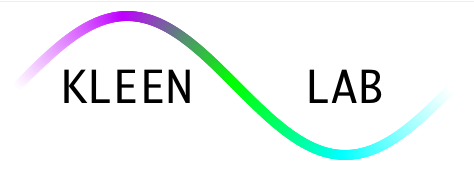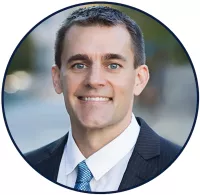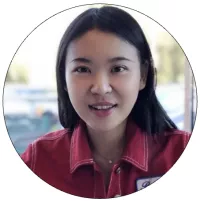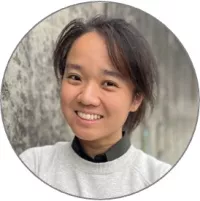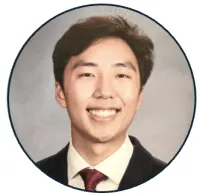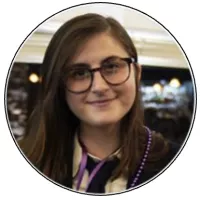Jon Kleen
Principal Investigator | Lip-Bu Tan Endowed Professor | UCSF Chen Scholar
Jon is originally from rural Minnesota. He earned a PhD from Dartmouth College studying neuroscience, engineering, and computer science, followed by his MD from Dartmouth Medical School. At UCSF, he completed a residency in neurology, clinical fellowship in epilepsy, and postdoctoral training in human neurophysiology research. He is both a physician and a scientist in the Department of Neurology, Division of Epilepsy, and UCSF Weill Institute for Neurosciences.
Da Zhang
Da is a postdoctoral scholar at UCSF who received her Ph.D. in electrical and computer engineering at the University of Miami under the mentorship of Professor Mansur R. Kabuka. During her Ph.D., she studied deep representation learning for biological networks and uncovered hidden patterns in sequential data. Her current research uses machine-learning and deep-learning-based methods to understand the semantic basis of neural signals. Some of Da's most recent accolades on her strong work in the Lab are listed below:
- Awarded a prestigious 2025 AES/American Epilepsy Society Postdoctoral Research Fellowship
- SFN 2025 Trainee Professional Development Award
- PyTorch Conference 2025 Scholarship
- Finalist for the 2025 UCSF Postdoc Slam
David Caldwell
David is a neurosurgery resident at UCSF who received his BSE and MSE in biomedical engineering at the University of Michigan, and subsequently his MD and PhD in bioengineering at the University of Washington. His PhD work was focused on engineering direct electrical stimulation of human sensorimotor cortex, working with patients that were implanted with electrodes in their brains for clinical care of epilepsy and movement disorders such as Parkinson’s and Essential Tremor. He is broadly interested in neural engineering and intracranial electrophysiology.
Monica Chao
Monica is a Neurologist and an Epilepsy Clinical Fellow in the Department of Neurology at UCSF. She trained at Harvard University, University of Cambridge, and Harvard Medical School before coming to UCSF for Neurology Residency training, and following fellowship she is joining the UCSF Epilepsy faculty. She is interested in epilepsy surgery, neuromodulation devices and computational neuroscience research.
Devon Krish
Devon is a current undergraduate studying bioengineering, electrical, and computer engineering (EECS) at UC Berkeley. He is widely interested in using machine learning and signal processing algorithms to decode abnormal bursts of neural activity. On previous projects, he’s worked to understand the link between interictal spikes and memory/language impairments, and he is currently focused on optimizing intracranial biomarker detection for neuromodulation and other cutting-edge technologies. In his free time, he enjoys writing music for film. Devon was recognized at UC Berkeley as a Goldwater Scholar Finalist in January 2026.
Grant Park
Grant is a Clinical Research Coordinator in the Laboratory of Edward Chang and he is co-mentored in the Kleen Lab by Dr. Kleen. He completed his Bachelor's Degree in B.S. in Computer Science (Computational Biology Track) at Stanford University. He works on software development for user interfaces used by researchers and physicians to annotate epilepsy-related brain wave phenomena (interictal spikes) in intracranial recordings.
Natalia Sucher Munizaga
Natalia grew up in New York City, earned her BA in Ancient Greek and Latin at Swarthmore College, and did post-baccalaureate work at UC Berkeley and City College of San Francisco studying computational neuroscience. Her focus is software development (MATLAB, Python) analyzing human intracranial signals in order to localize and track the propagation of seizure activity in the brain during specific seizure semiology features. She currently also serves as the Executive Director of the Epilepsy Foundation of Northern California.
Lab Alumni
Alumnus (and lab role) | Scholarly activity | Where they went |
| Ebenezer Chinedu-Eneh (Medical Student) | Chinedu-Eneh et al., 2025 | UT Southwestern Medical Center, Neurology Residency |
Raphaël Christin (Data Engineer) | Christin, Hines, et al., 2024 | McGill University, Neuroscience PhD graduate school |
| Emma D'Esopo (Research Assistant) | Silva et al (incl. D'Esopo), 2023 | Mission Preparatory School |
| Akshat Kalra (Staff Research Assistant) | ||
| Siddarth Marathe (Research Coordinator) | Tran et al. (incl. Marathe), 2024 | Baylor College of Medicine, MD/PhD program |
| Edwina Tran (Medical Student) | Tran et al., 2024 | Cedars-Sinai Medical Center, Neurosurgery Residency |
